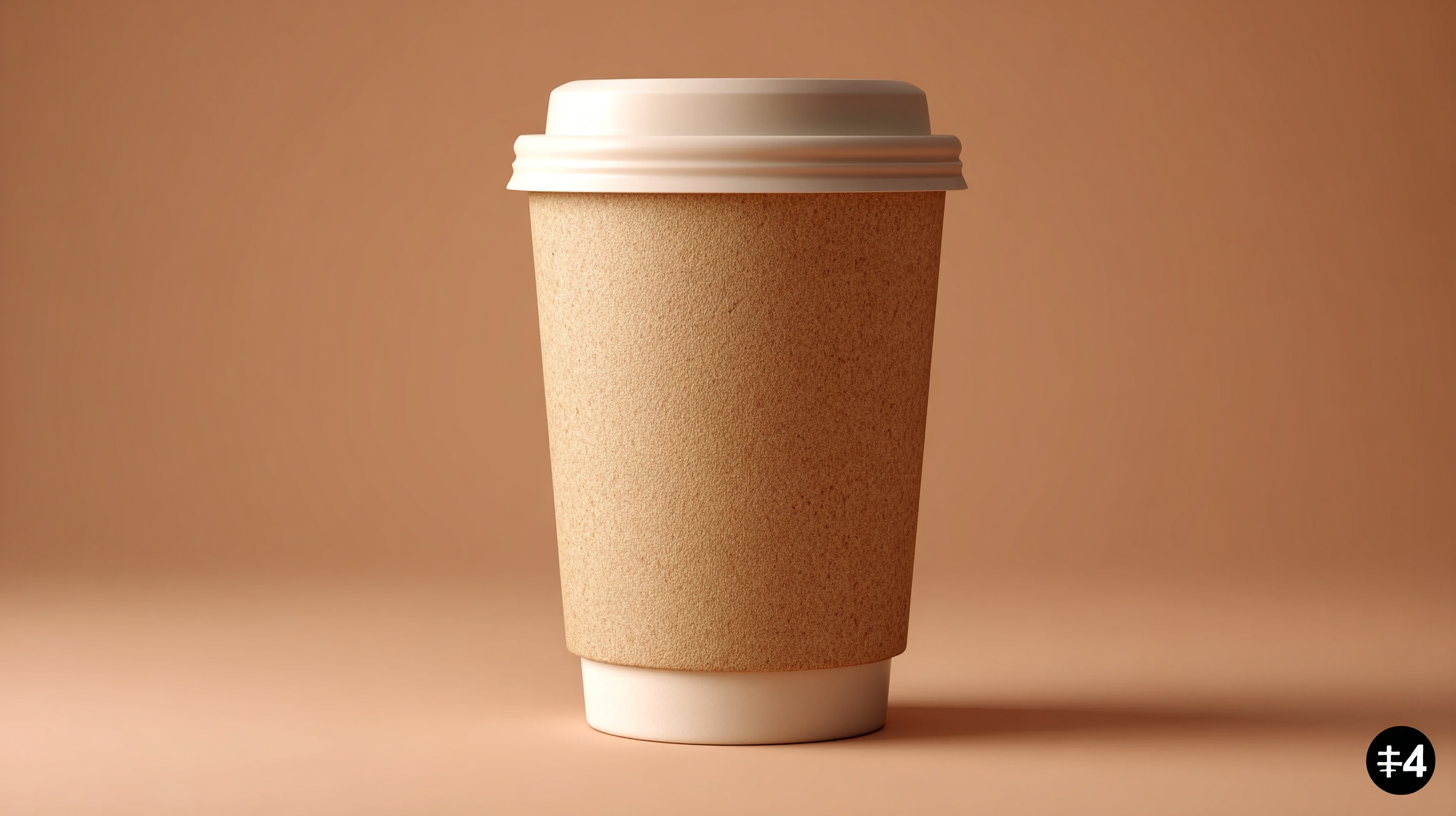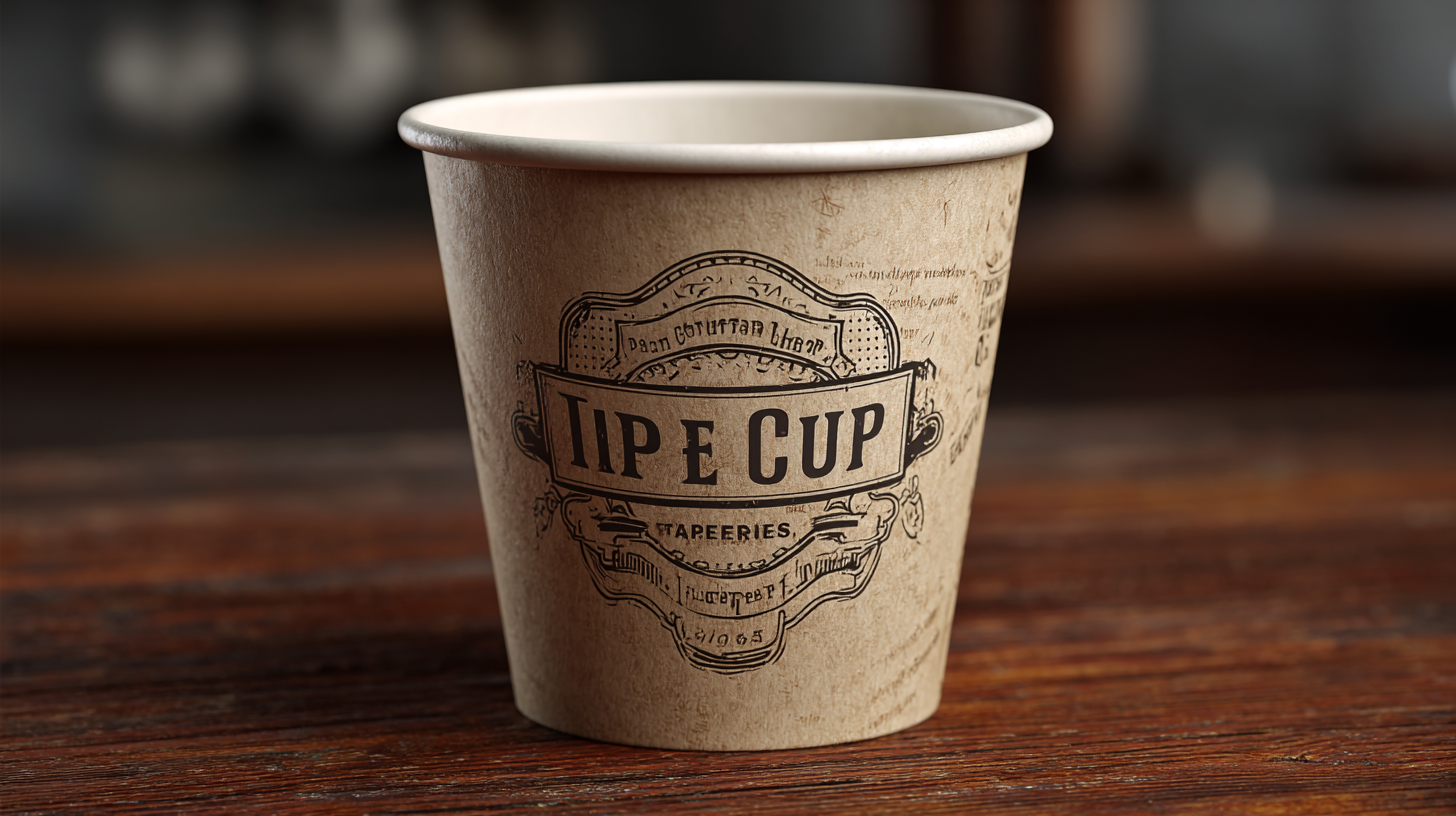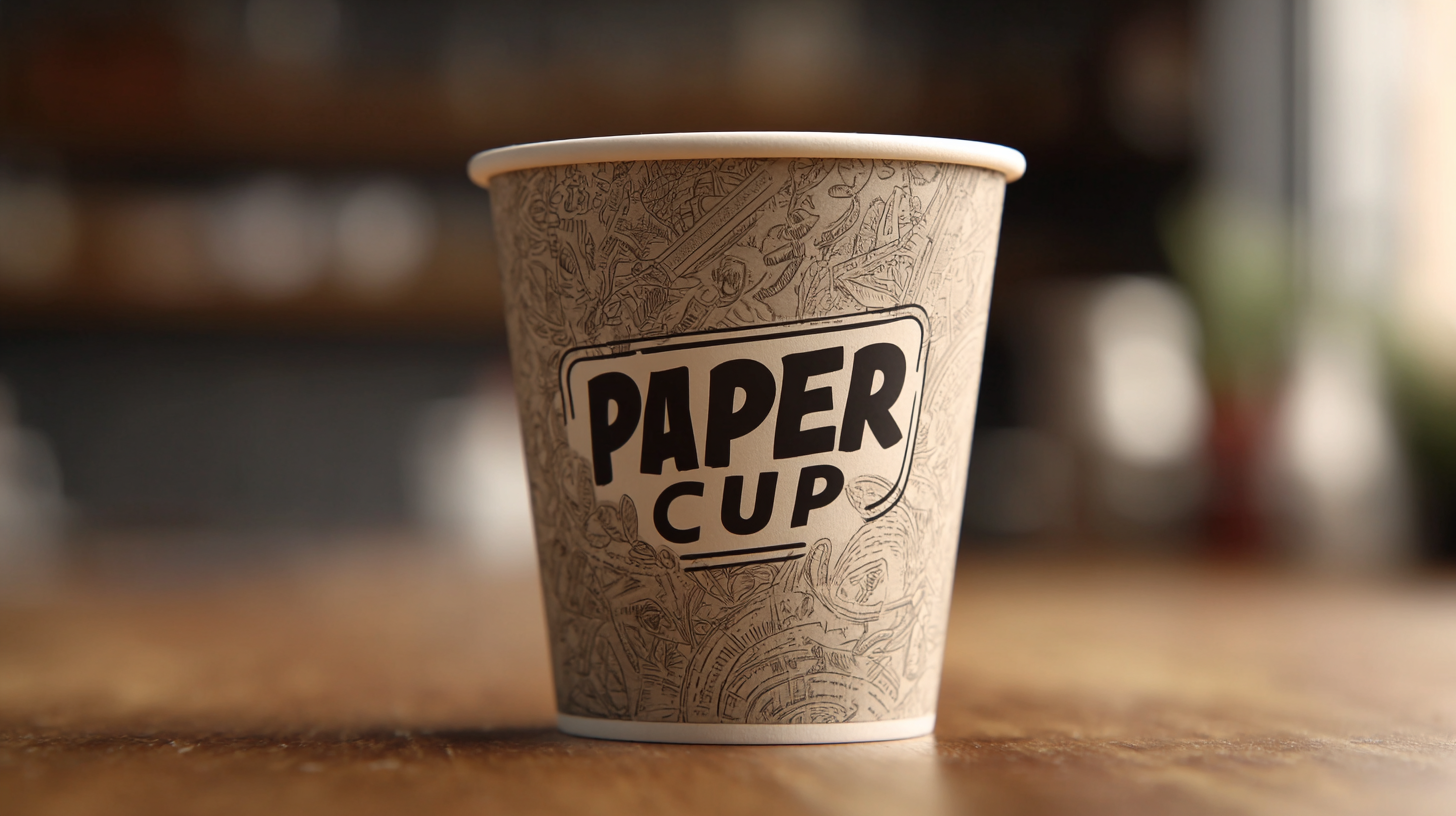
In today's fast-paced business environment, choosing the right supplies can significantly impact your success. One such essential item is the paper cup, which serves as both a functional container and a branding opportunity for your business. However, with the overwhelming variety of options available on the market, selecting the best paper cup to suit your specific needs can be a daunting task. From environmental considerations to insulation properties and design, there are several factors that can influence your choice.

In this blog, we will explore the common problems associated with various types of paper cups and provide you with five essential tips to navigate these challenges effectively. Whether you are running a coffee shop, catering business, or any establishment that requires reliable beverage solutions, understanding these elements will help you make an informed decision that aligns with your business goals.
When choosing the best paper cup for your business needs, understanding the different types available and their specific uses is critical. Paper cups can be broadly categorized into coated and uncoated varieties. Coated paper cups are often lined with a thin layer of plastic, which helps prevent leakage but complicates recycling efforts. This dual layer is a significant factor to consider, especially in light of the environmental impact associated with their disposal. Recent studies indicate that these liners can release microplastics into hot liquids, raising health concerns for consumers.

Furthermore, businesses should pay attention to the type of drinks they serve. For instance, cold beverages can be effectively served in standard paper cups, while hot beverages may necessitate insulated cups to prevent heat transfer. The introduction of minimum charge consultations for single-use cups highlights the growing emphasis on sustainability within the industry. Opting for options that are recyclable and practice responsible sourcing can significantly diminish your environmental footprint, catering to eco-conscious consumers and aligning with global efforts to reduce waste.
When it comes to sizing paper cups for your business, understanding the
customer experience is paramount. The right cup size not only
accommodates varying beverage portions but also affects the perception of
quality and value that consumers have.
Large cups can signal generous servings, while
smaller ones might suggest a premium, concentrated beverage.
It's essential to align the size of your cups with the expectations of your target market to enhance their
satisfaction and loyalty.
Additionally, the shape of the cup can significantly influence the
flavor and aroma perception of drinks.
Recent studies reveal that different cup shapes can impact how aromas and flavors are experienced, thus
affecting overall customer enjoyment. Selecting the ideal cup shape and size
can cater to various tastes and preferences, making it an integral part of the beverage experience. Paying
attention to these details can set your business apart and create
memorable moments for your customers, ultimately driving repeat visits.
In today's world, selecting the right paper cup for your business is not just about functionality; it’s increasingly about sustainability. As consumer awareness grows regarding environmental issues, businesses are under pressure to choose eco-friendly options that minimize their carbon footprint. The market for paper cups is projected to expand, with an estimated growth rate of over 3.86% from 2025 to 2032. This shift signifies a greater demand for sustainable products. By opting for compostable and recyclable paper cups, businesses can align themselves with these evolving consumer expectations and contribute positively to the environment.
One prominent example of this shift is the introduction of compostable cups in many beverage locations. This initiative not only reduces reliance on plastic but also encourages responsible disposal practices among customers. As brands move toward sustainable practices, the choice of cups becomes a critical part of their strategy to promote an eco-conscious image. Embracing eco-friendly paper cup options not only enhances brand reputation but also supports the wider goal of sustainability, making it an essential consideration for any business looking to thrive in an environmentally aware market.
When selecting the ideal paper cup for your business, evaluating quality is paramount. A durable and reliable paper cup should meet specific standards that ensure it can bear hot or cold beverages without leaking or losing its structural integrity. Focus on materials; choose cups made from high-quality paper that has a sturdy build. The coating used on the cup is also crucial—look for cups with a poly-lined or PLA-coated interior for added resistance to heat and moisture.
One of the essential tips is to check for certifications. Paper cups should be sourced from suppliers who adhere to industry regulations, such as the FDA or FSC certifications. This ensures that the materials used are safe for contact with food and environmentally responsible. Additionally, consider the cup’s design and insulation properties. Double-walled cups are particularly effective for hot drinks, providing added insulation and a comfortable grip for customers.
Another aspect to consider is customization options. A cup that reflects your brand’s identity can enhance customer experience and increase brand recognition. Ensure that the printing methods used do not compromise the cup’s quality and durability. Investing in high-quality paper cups may have a higher upfront cost, but the benefits of maintaining your brand's reputation and customer satisfaction will be worthwhile.

Customization is key when it comes to leveraging paper cups for branding opportunities. According to a study by the Paper and Paperboard Packaging Environmental Council, 75% of consumers can recall the brand on a cup they have used, highlighting the effectiveness of custom designs. Businesses can take advantage of this by offering unique graphics, logos, and messaging that resonate with their target audience. Customization not only builds brand recognition but also fosters a connection with consumers who appreciate personalized experiences.
Furthermore, according to a market analysis by Grand View Research, the global paper cups market was valued at $2.5 billion in 2020 and is projected to grow at a compound annual growth rate (CAGR) of 3.7% from 2021 to 2028. This growth indicates a rising demand for environmentally friendly options and creative branding solutions. By investing in customized paper cups made from sustainable materials, businesses can enhance their brand image while also appealing to eco-conscious consumers. This dual focus on sustainability and branding can set a company apart in a competitive marketplace, making paper cups a strategic choice for marketing initiatives.
| Tip Number | Tip Description | Customization Options |
|---|---|---|
| 1 | Determine the size and capacity needed for your business. | Various sizes (8oz, 12oz, 16oz) available. |
| 2 | Choose the appropriate material for insulation and durability. | Custom printed sleeves for extra insulation. |
| 3 | Consider eco-friendly options for sustainability. | Biodegradable and recyclable print options. |
| 4 | Think about branding opportunities for marketing. | Full-color logos and designs available for personalization. |
| 5 | Evaluate the cost-effectiveness and supplier reliability. | Bulk order discounts and reliable delivery schedules. |